News
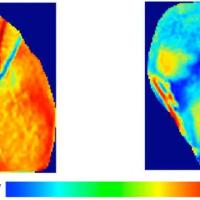
The malaria drug hydroxychloroquine, which has been promoted as a potential treatment for Covid-19, is known to have potentially serious effects on heart rhythms. Now, a team of researchers has used an optical mapping system to observe exactly…

A study led by The Diggle Lab found that the opportunistic pathogen Pseudomonas aeruginosa can quickly evolve in a synthetic media that mimics cystic fibrosis sputum, to develop tolerance and resistance to certain antibiotics.

Examining bacteria growing on toddlers’ teeth, Marvin Whiteley and a team from the University of Pennsylvania found microbes’ spatial organization is crucial to how they cause tooth decay.

Built with wheeled appendages that can be lifted and wheels able to wiggle, a new robot known as the “Mini Rover” has developed and tested complex locomotion techniques robust enough to help it climb hills covered with granular material – and…

School of Biological Sciences Professor Joshua Weitz is honored by the Graduate Student Government Association for his advocacy efforts for students.
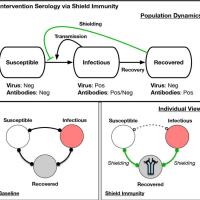
The presumed immunity of those who have recovered from the infection could allow them to safely substitute for susceptible people in certain high-contact occupations such as healthcare. Dubbed “shield immunity,” the anticipated protection against…

A new article from Georgia Tech professor Joel Kostka highlights the advances made in microbial science in the 10 years since the Deepwater Horizon oil spill, the world's worst environmental disaster.

QBioS PhD students of the 4th-year cohort will present their research throughout the Spring semester. Alireza Samani was the speaker for the inaugural talk, presenting his research on multicellular evolution.

A pair of College of Sciences professors -- Jenny McGuire in the School of Earth and Atmospheric Sciences/School of Biological Sciences, and Lutz Warnke of the School of Mathematics -- are receiving coveted National Science Foundation…

The science behind the epidemiological detective story regarding the current coronavirus epidemic was the subject of a Georgia Tech forum this week.

New Petit Institute program for core facilities supporting novel experiments

Two School of Physics scientists have published instructions for using powerful, lower-cost microcontrollers that can make biophysics research more accessible.
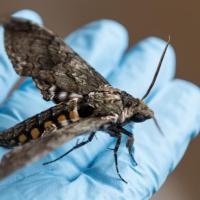
By capturing and analyzing nearly all of the brain signals sent to the wing muscles of hawk moths, researchers have shown that precise timing within rapid sequences of neural signal spikes is essential to controlling the flight muscles necessary…

How chiral systems emerged is one of the key questions of origins-of-life research. Many explanations have been proposed. Now a Georgia Tech team examining the problem suggests that stability is what drove the emergence of chiral systems.
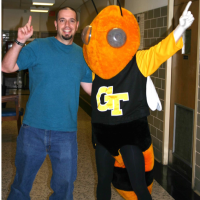
School of Biological Sciences associate professor Michael Goodisman is studying the highly social behavior of yellow jackets.

Five of the 14 the Petit Undergraduate Research Scholars for 2020 are science or mathematics majors. The 2020 scholars are a diverse cohort whose expertise spans a wide range of majors, notes Raquel Lieberman, professor in the School of…
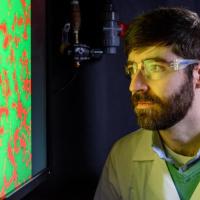
A team with promising technology to combat antibiotic resistance has received funding to accelerate commercialization. The team includes David Weiss, a clinical investigator…


